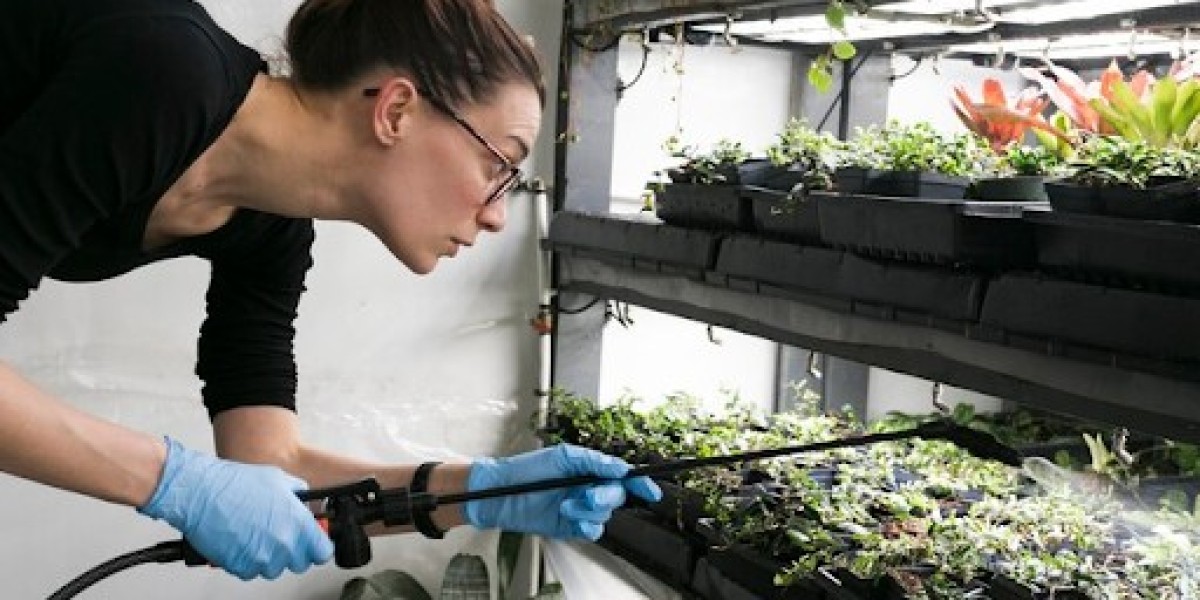The world of farming is rapidly changing, and as traditional agricultural practices face increasing challenges such as water scarcity, climate change, and soil depletion, a new and innovative approach is taking center stage. Hydroponics, a method of growing plants without soil, has emerged as a viable solution to these problems. Hydroponics education programs are playing a pivotal role in equipping the next generation of farmers, scientists, and sustainability advocates with the knowledge and skills needed to embrace this revolutionary farming technique. In this blog, we will explore what hydroponics education programs are, why they are important, and how they are shaping the future of sustainable farming.
What is Hydroponics?
Before diving into the details of education programs, it’s important to understand what hydroponics is and how it works. Hydroponics is a method of growing plants by providing them with all the nutrients they need through a water-based solution, rather than using soil. In this system, plants are typically grown with their roots submerged in a nutrient-rich liquid, or in an inert medium like perlite or coconut coir. Hydroponics allows for precise control over the growing environment, which results in faster plant growth, higher yields, and the ability to grow crops in locations where traditional farming may not be feasible.
Key Components of Hydroponics Education Programs
1. Understanding the Science of Hydroponics
At the heart of any hydroponics education program is the science behind it. Students learn about the biology and chemistry of plant growth, as well as the physics of water movement in hydroponic systems. They also study the nutrient requirements of different plants and how to create the ideal solution for each. Hydroponics education programs typically cover various types of hydroponic systems, including nutrient film technique (NFT), deep water culture (DWC), and aeroponics, providing a broad understanding of the methods that can be used.
2. Designing and Building Hydroponic Systems
A significant part of hydroponics education is learning how to design and build hydroponic systems. Students are taught the different components involved, such as grow trays, pumps, reservoirs, and lighting systems. They also learn how to calculate the optimal setup for specific types of crops. This hands-on experience enables students to gain practical skills that they can apply to their future projects, whether it’s running a commercial hydroponic farm or creating a small system for personal use.
3. Managing Environmental Factors
In hydroponics, maintaining the right environmental conditions is crucial for plant health. Education programs focus on how to manage factors like light, temperature, and humidity, which can all have a significant impact on plant growth. Students are introduced to different technologies, such as LED grow lights and climate control systems, which help ensure that plants thrive in a controlled environment. Understanding how to monitor and adjust these factors is key to the success of any hydroponic operation.
The Benefits of Hydroponics Education Programs
1. Fostering Innovation in Agriculture
Hydroponics education programs encourage innovation in agriculture by providing students with the tools and knowledge to think creatively about food production. With hydroponics, farmers are not restricted by soil conditions or weather patterns, enabling them to grow food in locations that were previously unsuitable for traditional farming. By understanding the science behind hydroponics, students can explore new ways to improve the technology and develop even more efficient and sustainable farming methods.
2. Addressing Food Insecurity
As climate change and other factors threaten food production worldwide, hydroponics offers a way to grow food in urban areas, reducing dependence on traditional farming methods. Hydroponics education programs can help individuals and communities establish local food systems that are more resilient and less vulnerable to external disruptions. By learning how to create small-scale hydroponic systems, students can contribute to alleviating food insecurity in their own communities.
3. Job Opportunities in a Growing Industry
The hydroponics industry is expanding rapidly, and there is a growing demand for skilled professionals who understand the intricacies of these systems. Hydroponics education programs open doors to a wide range of career opportunities in agriculture, technology, sustainability, and business. Whether it’s working for a large hydroponic farm, consulting for agricultural companies, or starting their own businesses, graduates of hydroponics programs are well-positioned to enter a thriving industry.
Conclusion
Hydroponics education programs are transforming the way we think about farming and food production. By combining cutting-edge technology, sustainable practices, and hands-on learning, these programs are shaping the future of agriculture. Whether you’re a student looking to make a career in sustainable farming or an entrepreneur interested in launching a hydroponic business, hydroponics education offers the tools, knowledge, and skills to help you succeed. Explore hydroponics and sustainability through NextWave STEM’s hands-on STEM Summer Programs, Robotics Classes, Hydroponics Workshops, and Sustainable Agriculture Programs. Join us and shape the future of farming today!










